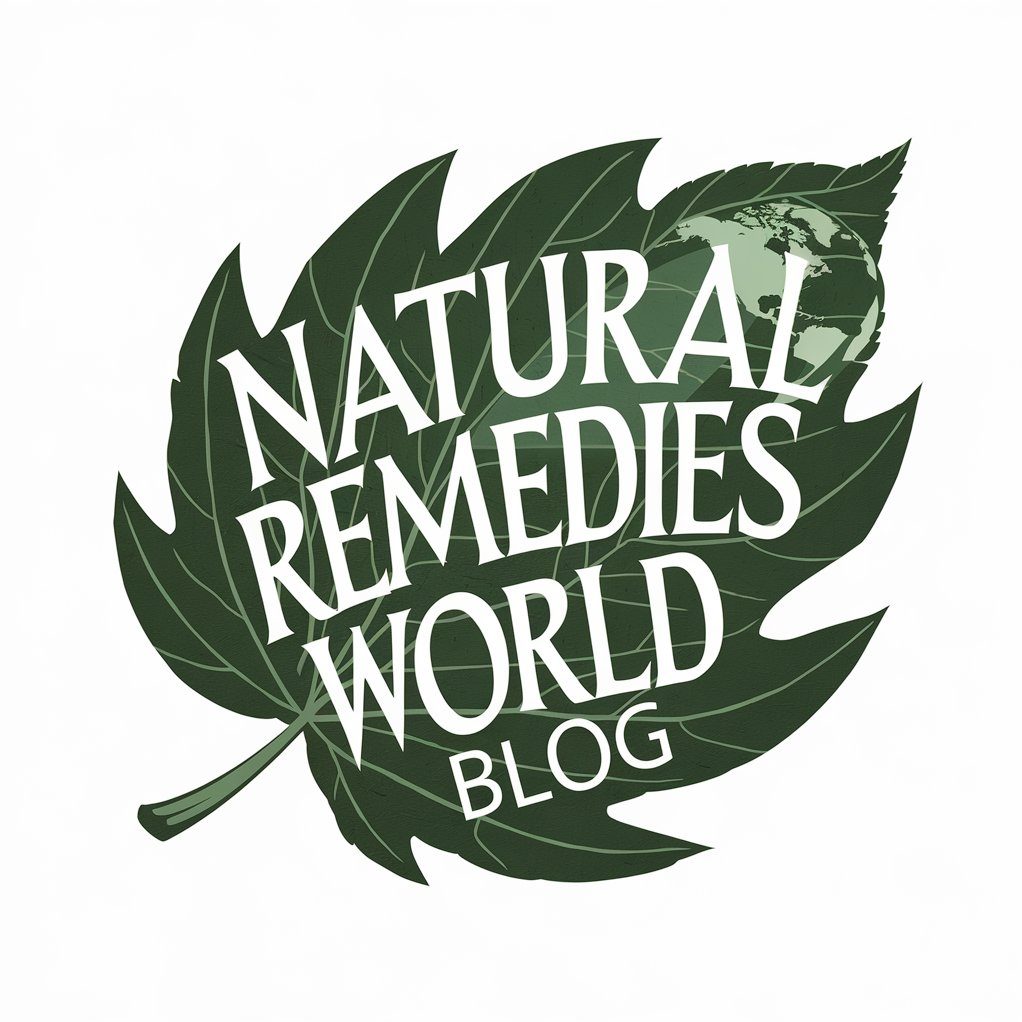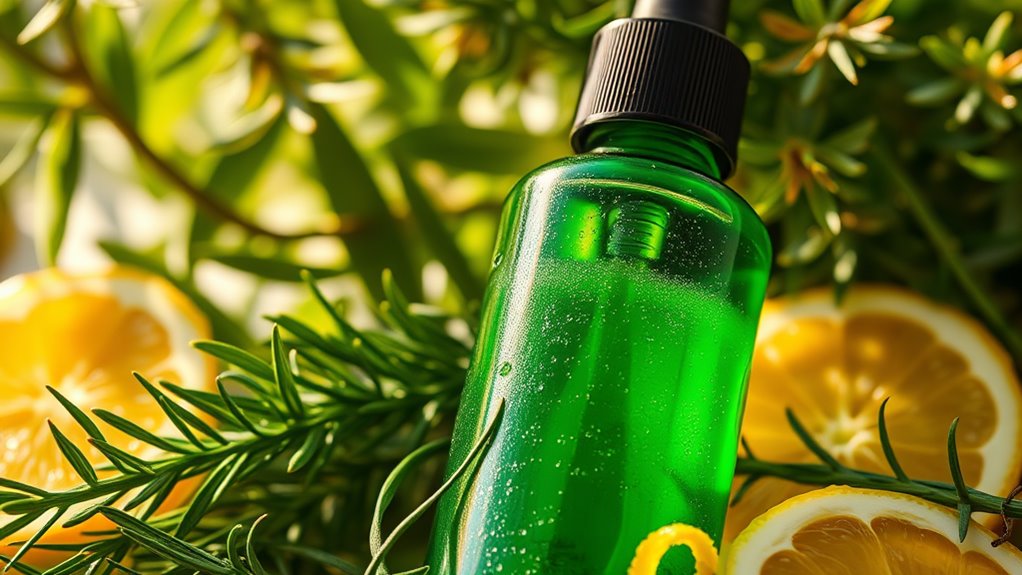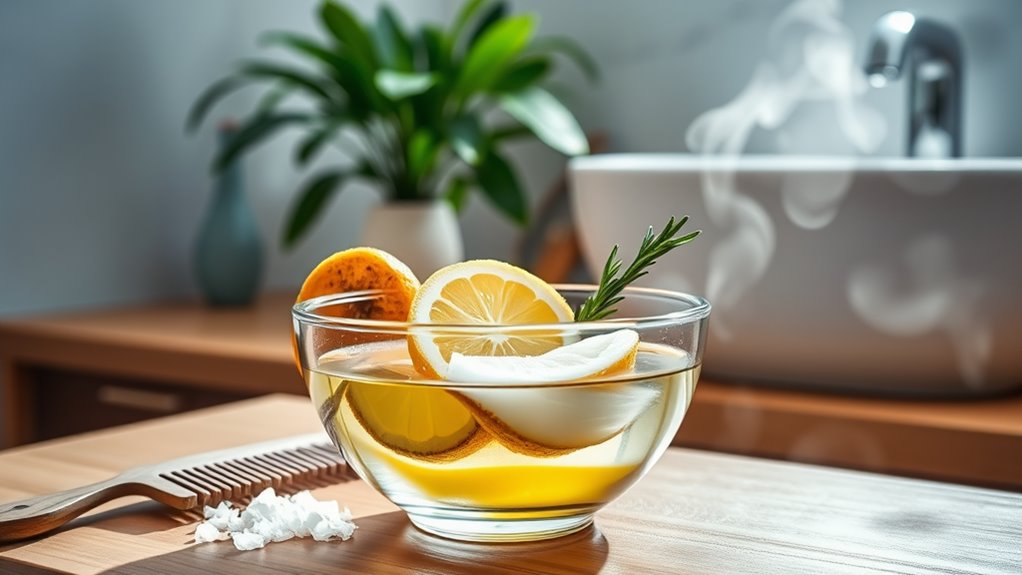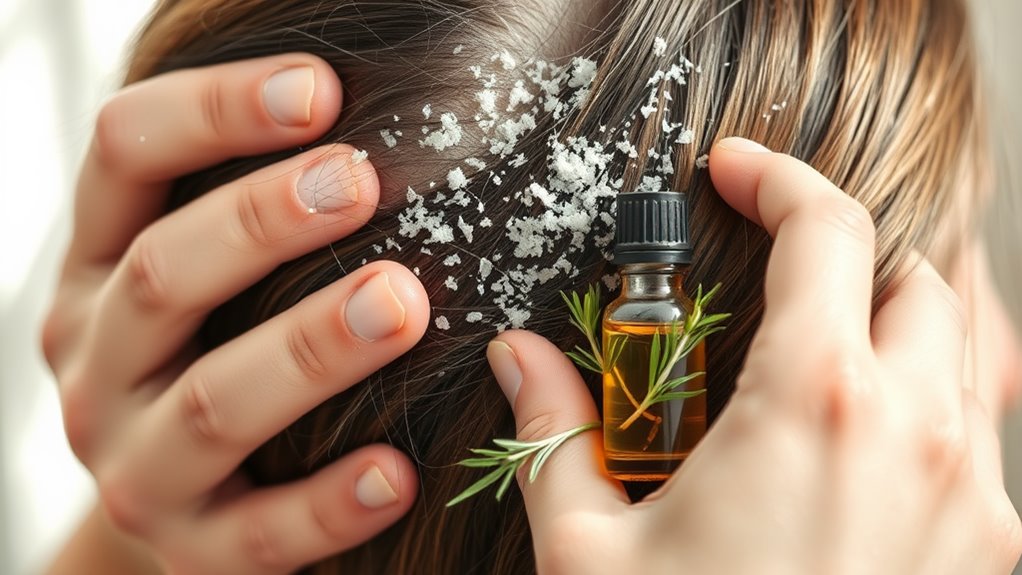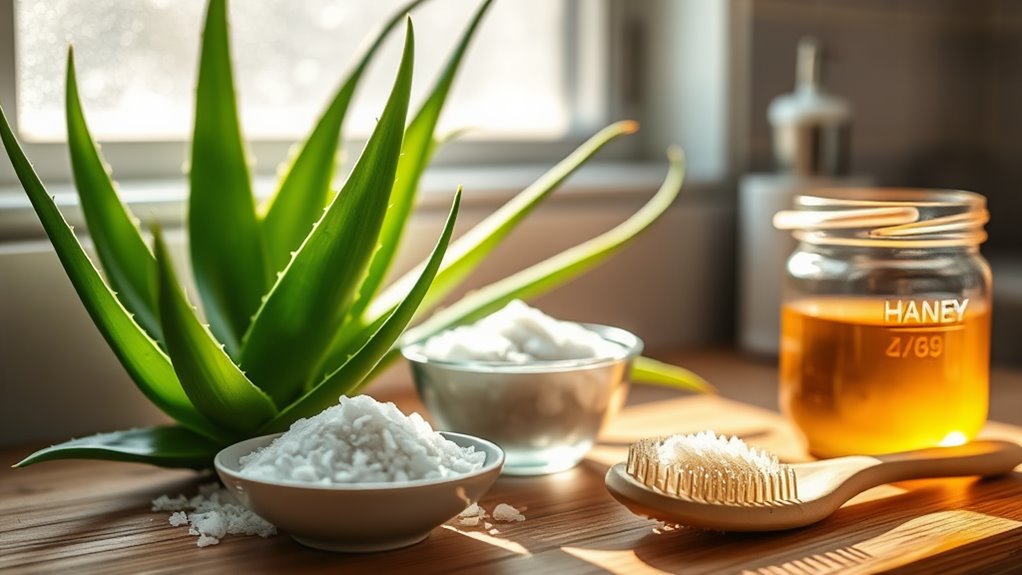Stop Dandruff in Its Tracks With This Natural Solution!
You can stop dandruff in its tracks with natural solutions like tea tree oil and apple cider vinegar. Mix tea tree oil with a carrier oil and massage it into your scalp to tackle the Malassezia fungus. Rinsing with diluted apple cider vinegar balances your scalp’s pH and reduces itchiness. Don’t forget to stay hydrated and choose gentle hair products too! There are even more effective remedies and tips you might find helpful for lasting relief.
Understanding Dandruff: Causes and Symptoms
Dandruff can be frustrating, especially when you don’t know what’s causing it. This common scalp condition often results from dry skin, oily skin, or a sensitivity to hair products.
You might also experience an overgrowth of a yeast-like fungus called Malassezia, which can irritate your scalp and lead to flaking. Symptoms usually include white or yellow flakes in your hair or on your shoulders, an itchy scalp, and redness.
Stress, hormonal changes, and even diet can play a role in worsening your dandruff. Understanding these causes can help you identify the triggers in your own life, allowing you to take steps toward managing it effectively.
Natural Remedies for Dandruff Relief
When you’re looking for effective ways to combat dandruff, exploring natural remedies can be a game changer.
Tea tree oil is a popular choice, known for its antifungal properties. Just mix a few drops with a carrier oil and massage it into your scalp.
You might also try apple cider vinegar, which balances your scalp’s pH and reduces itchiness. Dilute it with water, apply it after shampooing, and rinse it out.
Aloe vera is another great option; it soothes irritation and moisturizes your scalp. Simply apply fresh aloe gel directly to your scalp and leave it for about 30 minutes before rinsing.
Incorporating these remedies into your routine can help you achieve a healthier, flake-free scalp naturally.
DIY Treatments You Can Try at Home
Experimenting with DIY treatments can be an effective way to tackle dandruff using ingredients you might already have at home.
One simple method is mixing equal parts of apple cider vinegar and water, applying it to your scalp, and letting it sit for about 15 minutes before rinsing.
Another option is using coconut oil, which not only moisturizes your scalp but also has antifungal properties. Just warm a couple of tablespoons, massage it in, and leave it on for at least an hour before washing out.
You could also try a scrub made from baking soda and water; it helps exfoliate your scalp and reduce flakiness.
These natural treatments can give your scalp the care it needs!
Preventive Measures for a Healthier Scalp
To maintain a healthier scalp, it’s essential to adopt preventive measures that can reduce the likelihood of dandruff forming in the first place. Here are three key steps you can take:
-
Stay Hydrated: Drinking enough water helps keep your scalp moisturized and prevents dryness, which can lead to flakes.
-
Choose the Right Products: Opt for gentle shampoos and conditioners free of harsh chemicals. Look for those with natural ingredients to nourish your scalp.
-
Manage Stress: High stress levels can trigger dandruff. Incorporate relaxation techniques like yoga or meditation into your routine to keep your mind and scalp healthy.
Essential Hair Care Tips for Flake-Free Locks
Although you may already have a routine, incorporating essential hair care tips can make a significant difference in achieving flake-free locks.
Start by choosing a gentle, sulfate-free shampoo that suits your scalp type. Wash your hair regularly to remove excess oil and dead skin cells, but don’t overdo it; two to three times a week is often ideal.
Condition your hair to keep it hydrated, focusing on the ends. Try massaging your scalp during washing to stimulate blood circulation and promote a healthy scalp environment.
Additionally, don’t forget to maintain a balanced diet rich in vitamins, minerals, and fatty acids to support hair health.
Lastly, minimize heat styling and harsh chemicals to maintain your hair’s natural moisture.
Frequently Asked Questions
Can Dandruff Be a Sign of a More Serious Condition?
Yes, dandruff can indicate a more serious condition, like seborrheic dermatitis or psoriasis. If you notice persistent flakes, redness, or irritation, it’s best to consult a dermatologist for a proper diagnosis and treatment options.
How Long Does It Take to See Results From Natural Remedies?
You’ll likely see results from natural remedies within a few weeks, but it can vary based on your hair type and the severity of your dandruff. Consistency is key, so stick with your chosen remedy!
Is Dandruff More Common in Certain Hair Types?
Yes, dandruff tends to be more common in oily hair types due to excess sebum production. However, dry hair can also experience flaking. Your hair type plays a significant role in how dandruff manifests.
Can Diet Impact the Severity of Dandruff?
Yes, your diet can impact the severity of dandruff. Eating foods rich in zinc, omega-3 fatty acids, and vitamins can help maintain scalp health. Avoiding sugar and processed foods may also reduce irritation and flakiness.
Are There Specific Hair Products to Avoid With Dandruff?
When dealing with dandruff, you should avoid products containing alcohol, sulfates, or strong fragrances. These ingredients can irritate your scalp and worsen dryness, so opt for gentle, moisturizing options instead for better results.
